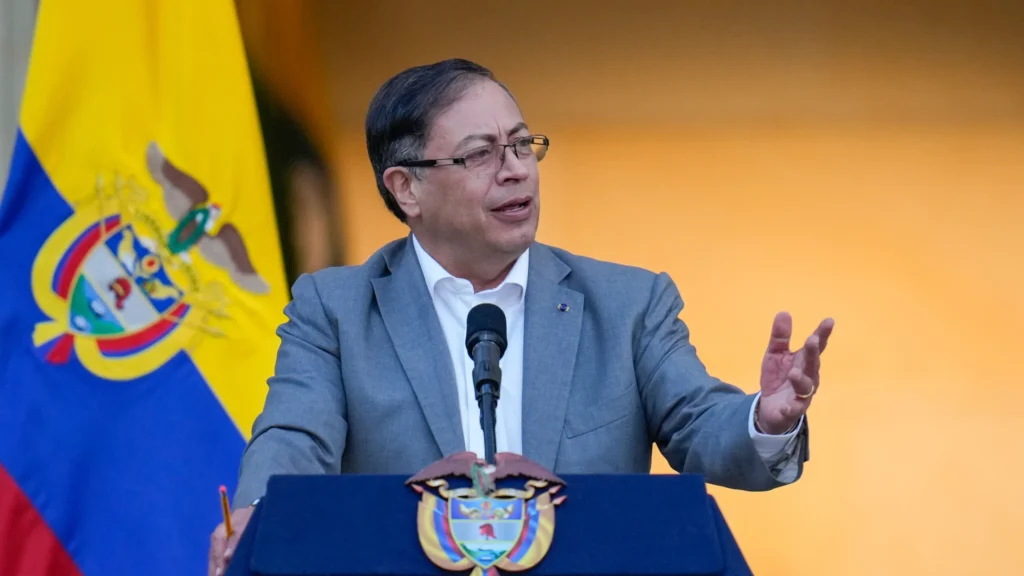The United States has revoked the visa of Colombian President Gustavo Petro following his controversial remarks during a pro-Palestinian street protest in New York. The decision was announced by the US State Department on Friday, sparking a diplomatic row and intensifying tensions between Washington and Bogotá.
According to the State Department, the move was based on Petro’s “reckless and incendiary actions.” During the protest, the Colombian leader urged US soldiers to disobey orders and resist what he described as “Trump’s tyranny.” Speaking through a megaphone, Petro called for a global army “larger than that of the United States” and appealed to American troops to “obey the order of humanity” rather than their government.
The remarks quickly drew condemnation from Washington. “Earlier today, Colombian president @petrogustavo stood on a NYC street and urged US soldiers to disobey orders and incite violence,” the State Department posted on X, formerly Twitter. “We will revoke Petro’s visa due to his reckless and incendiary actions.”
Petro, already en route back to Bogotá on Friday evening, had earlier criticized US airstrikes on alleged drug-trafficking boats in the Caribbean, comparing them to “an act of tyranny.” He suggested that some of those killed may have been Colombian citizens. Washington insists the operations are part of its anti-narcotics mission targeting networks linked to Venezuela.
The fallout extends beyond Colombia. The US also denied visas to Palestinian Authority President Mahmoud Abbas and 80 Palestinian officials, effectively barring them from attending this week’s UN General Assembly in New York.
Colombia’s Interior Minister Armando Benedetti criticized Washington’s move, saying that instead of targeting Petro, the US should have revoked Israeli Prime Minister Benjamin Netanyahu’s visa. “But since the empire protects him, it’s taking it out on the only president who dared to tell him the truth to his face,” Benedetti wrote on X.
The episode underscores worsening relations between the Trump administration and Petro, Colombia’s first leftist president, at a time when Bogotá remains central to US anti-narcotics efforts in Latin America.

